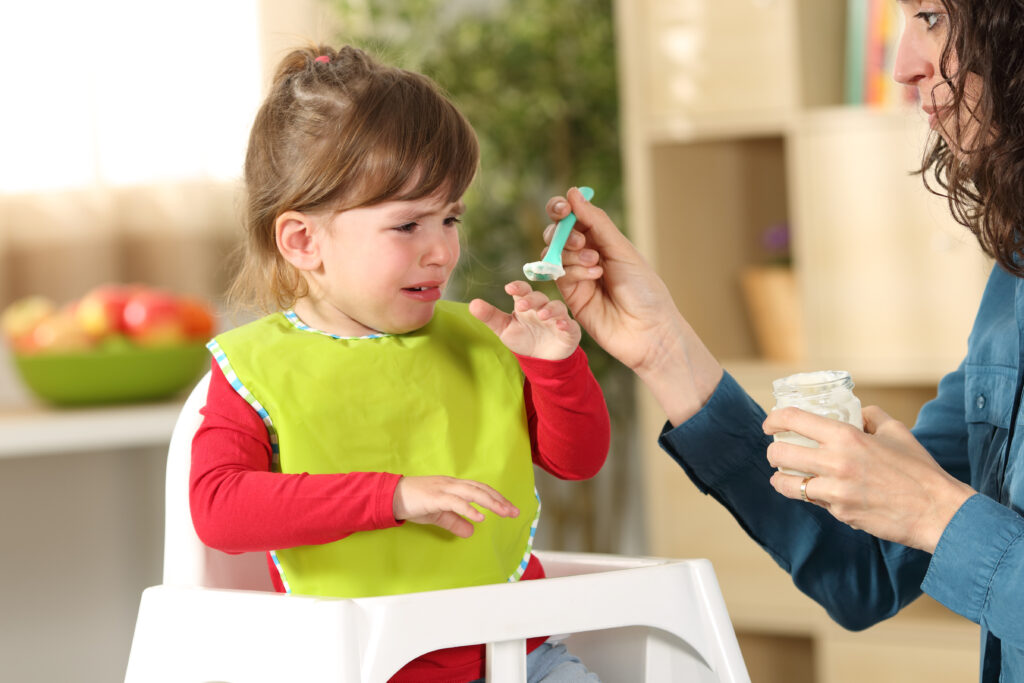Food refusal is a normal developmental phase during the toddler years when young children become very selective about the food they are willing to eat. Young children who enter this phase, often beginning around 12-18 months, with a narrow range of accepted foods and textures, often find it more challenging to accept new and unfamiliar foods. Foods that have been happily accepted before, may also be refused and disliked. Toddlers may show preference for easier, soft textures and sweeter, bland tastes. These behaviours are often more about this particular development stage, with a new-found sense of themselves, and the ability to say “no! I don’t like that”. Managing these behaviours over the toddler years, and supporting the development of their relationship with food, feeding & nutrition is a task that responds to a consistent framework, one which I call structure, nurture and boundaries. On the other hand, those infants with early feeding histories affected by illness, allergies or aversion, may need more attention to support the nutrition needed to promote growth and wellness. Carine works across this spectrum of feeding difficulties in the early and school years, in providing nutritional assessment, therapeutic diets, diet-related change guidance and online workshops.












